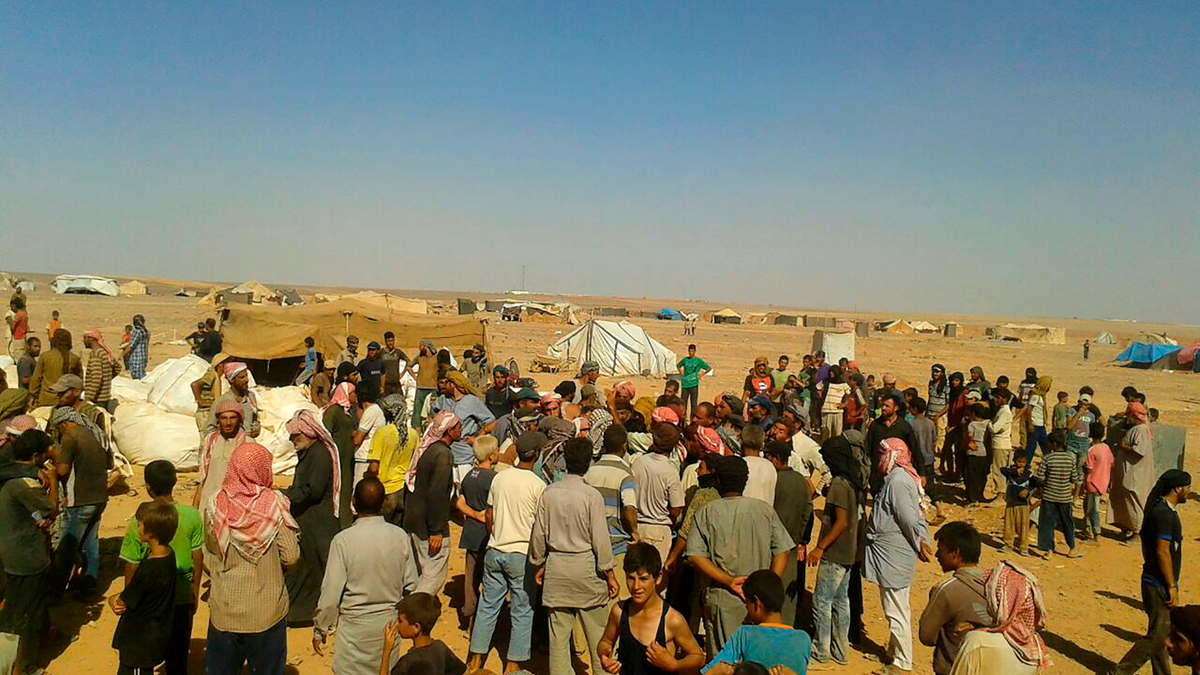State Department investigates suspected chlorine attack in Syria
Retired Adm. William McRaven says if Syria is using chemical weapons the U.S. military will take appropriate action.
Unless you deliberately searched for it, you probably missed one of the most significant news stories of the past few weeks.
After eight years of bloody fighting, the Syrian civil war may finally be coming to an end. The Syrian army launched an offensive to retake Idlib, the last major rebel stronghold. If Idlib falls, opposition against President Bashar Assad’s regime will virtually be over.
SYRIA'S OPPOSITION FARMLANDS SET ON FIRE BY REGIME BOMBS, SATELLITE IMAGES SHOW
The humanitarian cost of the offensive has been devastating. An estimated 526 civilians -- 131 of them children -- have been killed by the army’s relentless airstrikes since the end of April, according to the Syrian Observatory for Human Rights.
There is no safe place people can hide or run to for help, as even hospitals, clinics and ambulances have been targeted, despite strong condemnation from the U.N. And as the offensive prolongs, the situation becomes more dire.
Reports suggest the army may be setting crop fields on fire, cutting vital food supplies to the three million people who live in Idlib and the surrounding area. More than 300,000 people have been displaced, straining the overcrowded and under-supplied refugee camps in northern Syria.
It’s a humanitarian disaster waiting to happen, but few are paying attention. The sad truth is we have become numb to the suffering of the Syrian people and deaf to their cries for help.
It’s “old news.” We’ve come to accept the fact that people die in the Middle East every day, and we have moved on.
Having spent nearly three decades responding to humanitarian crises and disasters, I have learned that the greatest challenge in humanitarian work is not necessarily getting people to respond to initial calls for help. That’s the easy part.
A natural disaster is front page news. Everyone is talking about it, and people feel excited to get involved. But when the next big story comes along -- another storm or a rare disease -- you can bet few people are still thinking about those disaster victims who have months and years of recovery ahead of them.
And the same thing is happening in Syria right now.
The greatest challenge is getting people to remain committed to continue helping. After eight years of terrible civil war, which has killed half a million citizens and triggered the worst refugee crisis since World War II, it’s no wonder people might ask, “What can we do about it?”

If there’s one thing I know about a crisis like the one happening in Syria, it’s this: When people are dying, you don’t need to waste time asking more questions or weighing the cost of inconvenience; you simply need to help now.
Unless something changes and changes quickly, years from now, history will write this as a moment of failure for all who considered themselves humanitarians. We will have to answer to our children and grandchildren why we stood paralyzed in the face of unspeakable violence and suffering.
But if we truly understand that underneath a conflict the world has grown weary of are people who desperately need our help, then we won’t be paralyzed any longer. We will do something!
No matter how terrible or helpless the situation may seem, we can be part of the solution, even if it means helping just one person.
Nada, whose name I’ve changed for her safety, is from Homs. Early in the conflict, Homs was one of the key strategic bases of the resistance, making it a prime target for the Syrian army. The regime launched a barrage of strikes that left the city an unrecognizable mess.
That’s where Nada and her family’s journey to a refugee camp in Jordan started. Along the way, Nada saw the horrors of the war. At one point she witnessed a girl get raped in front of her mother. The grief drove the mother to her death.
Nada and her family were clinically traumatized by the time they arrived at a refugee camp. They had lost family members, friends, and their home, and now they were stranded in one of the largest refugee camps in the world.
While there, Nada walked into a clinic in the camp our organization supports. She had heard from a friend that the clinic offered a trauma course to help refugees heal.
SYRIAN DOCTOR DESCRIBES LATEST ALLEGED CHEMICAL ATTACK
“The staff at the clinic stood by my side and felt my pain and relieved me. They shared with me the love of God. By the end of the trauma healing course, I had changed completely and returned to me the beautiful smile that adorns my face. I realized that through all my suffering, God was with me and supported me and will complete the journey with me,” Nada told our partners at the clinic.
Nada’s story is one of hundreds we hear from people who come to the clinic. Our partners provide them with free health care and medicine. Through the help of generous donors who have supported us over the years, we also have been able to provide refugee families with food, water, and hygiene kits year-round as well as blankets and space heaters during the cold winter months.
Most of us don’t give a second thought to these items in our day-to-day lives. But to these families they mean one more meal, one more sip of water in the dry desert heat, and one more night they can sleep and not fear the cold.
CLICK HERE TO GET THE FOX NEWS APP
In other words, they mean survival.
The Syrian crisis may well come to an end after Idlib, but that doesn’t mean we have to forget or abandon the Syrian people. They are crying for our help, and we should respond to their needs. There is always something we can do to help.









































